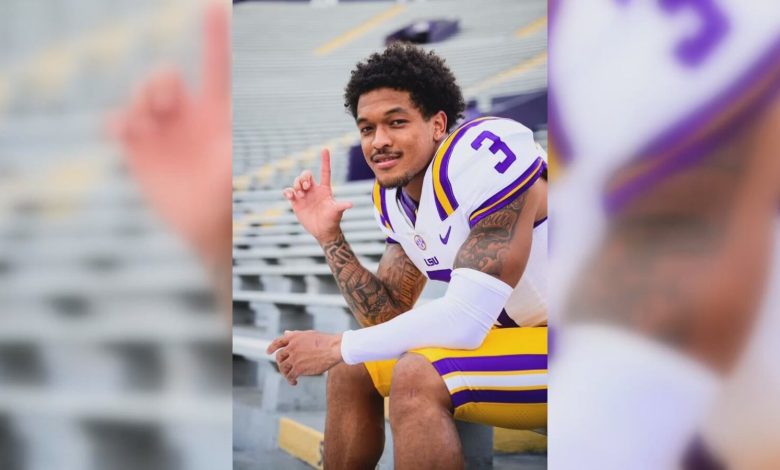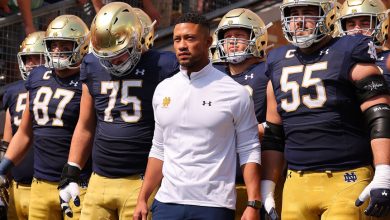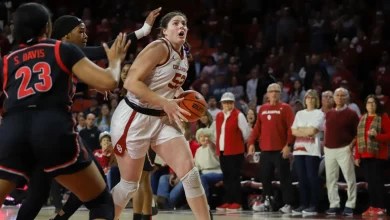Former LSU football player Greg Brooks wins lawsuit, achieving a significant court victory in his legal battle.

In a landmark decision that resonates beyond the sports world, former LSU football player Greg Brooks has secured a major victory in court. This outcome not only marks a personal triumph for Brooks but also raises important questions about athlete rights, player safety, and institutional accountability in collegiate sports.
This article explores the background of the lawsuit, the legal battle that ensued, and the broader implications of Brooks’s court win for the NCAA, LSU, and the future of college athletics.
The Background: Who is Greg Brooks?
Greg Brooks is a former defensive back who played for Louisiana State University (LSU) in the early 2010s. Known for his athleticism and tenacity on the field, Brooks was a promising talent who contributed significantly to LSU’s football program during his collegiate career.
Like many college athletes, Brooks faced tremendous pressure both on and off the field. The physical toll of high-impact football left lasting effects on his health and well-being. Over time, Brooks experienced symptoms and challenges that he attributed to injuries sustained while playing at LSU.
The Lawsuit: Grounds and Claims
Brooks filed a lawsuit against LSU and associated parties alleging negligence and failure to protect him from harm during his time with the program. The suit centered around claims that LSU did not provide adequate medical care, failed to properly diagnose or treat injuries, and did not fully disclose the risks associated with playing football at such a high level.
Key points of the lawsuit included:
- Inadequate medical supervision: Brooks claimed that the medical staff at LSU did not properly monitor his health and failed to prevent or mitigate injuries.
- Lack of informed consent: The suit alleged that LSU did not sufficiently inform players like Brooks about the risks of concussions, head trauma, and other serious injuries.
- Long-term health consequences: Brooks detailed the lasting impact on his physical and mental health, linking these issues directly to his football career at LSU.
The legal battle was complex, involving expert testimonies, medical records, and extensive documentation of the football program’s practices.
The Court Victory: What Happened?
After months of legal proceedings, the court ruled in favor of Greg Brooks. This victory was significant for several reasons:
1. Validation of Player Concerns
The court’s decision acknowledged the validity of Brooks’s claims, affirming that LSU bore responsibility for some of the harms he suffered. This recognition is crucial in an era when athlete safety and institutional accountability are under intense scrutiny.
2. Precedent for Future Cases
Brooks’s victory sets an important legal precedent. It opens the door for other former athletes who have faced similar issues to seek justice. The ruling sends a clear message to college programs nationwide about the importance of protecting their players.
3. Institutional Accountability
By holding LSU accountable, the court emphasized the duty of collegiate programs to prioritize player health and safety. The decision highlights the need for robust medical protocols and transparent communication with athletes.
The Broader Context: Athlete Safety in College Football
Greg Brooks’s lawsuit and court victory come at a time when concerns about athlete safety, particularly regarding concussions and chronic traumatic encephalopathy (CTE), have reached a fever pitch.
The Concussion Crisis
In recent years, the link between repetitive head trauma and long-term brain injury has been well documented. Former NFL players and college athletes alike have brought attention to the dangers of concussions and the lack of adequate protection.
Colleges, including LSU, have been criticized for not doing enough to prevent these injuries or support affected athletes. Brooks’s case underscores these issues, highlighting the real human cost behind the headlines.
NCAA’s Response and Policy Changes
The NCAA has implemented new concussion protocols and health initiatives, but critics argue that enforcement and consistency remain challenges. Brooks’s lawsuit serves as a reminder that policies must translate into tangible protections on the ground.
Impact on LSU Football and the Program’s Reputation
LSU’s football program is one of the most storied in college sports, with a passionate fan base and a legacy of success. However, Brooks’s lawsuit and the subsequent court ruling cast a shadow over the program’s commitment to player welfare.
The case has prompted LSU to review its medical practices and player care policies. Administrators have indicated a willingness to improve transparency and support services, but the legal fallout serves as a cautionary tale about institutional responsibility.
The Personal Toll on Greg Brooks
Beyond the legal victory, this case represents a personal milestone for Greg Brooks. The physical and emotional challenges he faced have been immense, and the legal battle itself was a taxing process.
Brooks’s story is one of resilience and courage — standing up to a powerful institution to seek justice. His win empowers other athletes to speak out and demand better protections.
What’s Next? The Future of Athlete Rights and Safety
Greg Brooks’s court victory is part of a broader movement toward enhanced rights and safety measures for college athletes. Several key areas are emerging as focal points:
1. Improved Medical Protocols
Colleges must adopt and rigorously enforce medical standards to prevent injuries and provide comprehensive care.
2. Education and Transparency
Athletes deserve clear, honest information about risks and long-term health implications.
3. Legal Protections
Reforms in NCAA policies and state laws may provide stronger safeguards and recourse for injured players.
4. Cultural Shift
Beyond rules, programs must foster a culture that prioritizes player well-being over wins and profits.
The victory of former LSU football player Greg Brooks in his lawsuit is a milestone in the ongoing struggle to improve athlete safety and institutional accountability in college sports. It validates the experiences of countless players and highlights the urgent need for reforms in how collegiate programs manage player health.
As Brooks moves forward, his case will likely inspire further changes, ensuring that future generations of athletes receive the care and respect they deserve.
This landmark court decision serves as both a warning and a beacon — reminding programs of their responsibilities and empowering athletes to demand better treatment.









